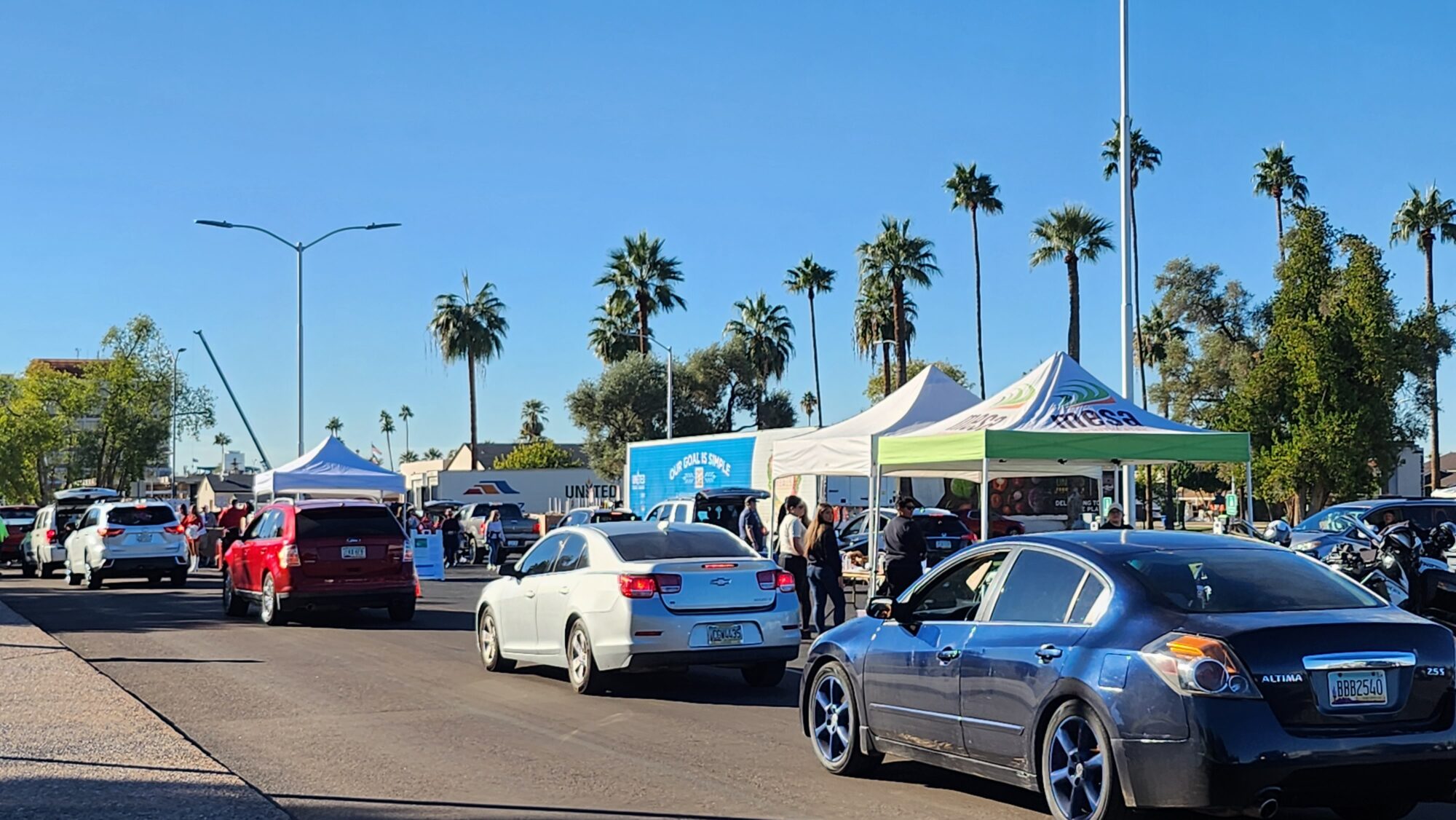
New Beginnings, Unseen Hardships: The Food Insecurity Dilemma in Arizona
In the aftermath of the COVID-19 pandemic, a significant number of individuals chose to relocate to Arizona, enticed by its reputation for affordability and expansive landscapes. However, over time, a new predicament has surfaced for some of these recent residents: food insecurity. From economic factors, population movements, and the ever-changing job market, these new residents faced a variety of challenges uprooting their lives in search of a more affordable existence.
“I’m not going to lie; it has been a struggle. This is our first time coming to a food distribution, but we’re hopeful and grateful,” says new Arizona resident Nicole, who moved with her partner and family this past March from California. “We recently moved because Arizona was affordable and there were jobs. Thankfully, we both just started new jobs, and we’re excited.”

Only some new residents who relocated to Arizona seeking employment opportunities had the same fortunate experience as Nicole, with the job market realities not living up to expectations. New resident Kiki, who moved from Michigan during the pandemic, faced unforeseen health issues after contracting COVID-19, leading to job loss. “This is my first distribution, and one thing that would really help me besides food is job training, to be able to do something new despite my health,” she shared.
While Arizona’s lower cost of living attracted families like Nicole’s and Kiki’s during the pandemic, the state’s higher-than-national-average poverty rates have posed unexpected challenges for other newcomers. The pandemic has exacerbated these economic challenges, leaving many newcomers grappling with unforeseen hardships. Organizations like United Food Bank work hard to alleviate some of these challenges by taking one less problem off residents’ plates. Aiming to “provide food for today and food for tomorrow,” United Food Bank partners with 150 food pantries and resource agencies to help community members find the support systems they need. Increasing awareness about available resource programs, establishing widespread food pantries, and fostering a sense of belonging can help newcomers navigate the unexpected challenges they face.
“It helps when the budget is tight,” says new Arizona resident Mark, who moved here from Washington with his wife. They moved to Arizona shortly before retiring, mostly because the weather helped improve his wife’s health. Mark stopped by United Food Bank’s November Holiday Distribution to collect and distribute food boxes for four different families, hoping to make the holidays a little easier for his community.

Another new Arizona resident shared how her experience with resources like United Food Bank helped get her back on her feet. Tonya recently moved from Florida seeking better working conditions in her field in mental health. “This is my first drive-through distribution, but I’ve been to some of the other food pantries in Mesa. We were homeless for about 9 months, living out of a motel. I had to fib to my employers for a little bit because it’s hard to beat. But we just moved into a new place here, so now I’m honest,” she cheerfully mentions. “I feel like we have everything we need now.” Without having to stress about putting food on the table, Tonya was able to focus on improving other areas in her life and is excited to establish herself in her new community.
The decision to move for affordability brought unexpected struggles for some in the form of food insecurity. United Food Bank and its partners remain committed to eliminating this challenge, ensuring residents never have to face such difficult choices. For more information on how you can help support United Food Bank’s mission of uniting communities to alleviate hunger, check out our involvement page at https://unitedfoodbank.org/volunteer/.
Written by KC Raguay